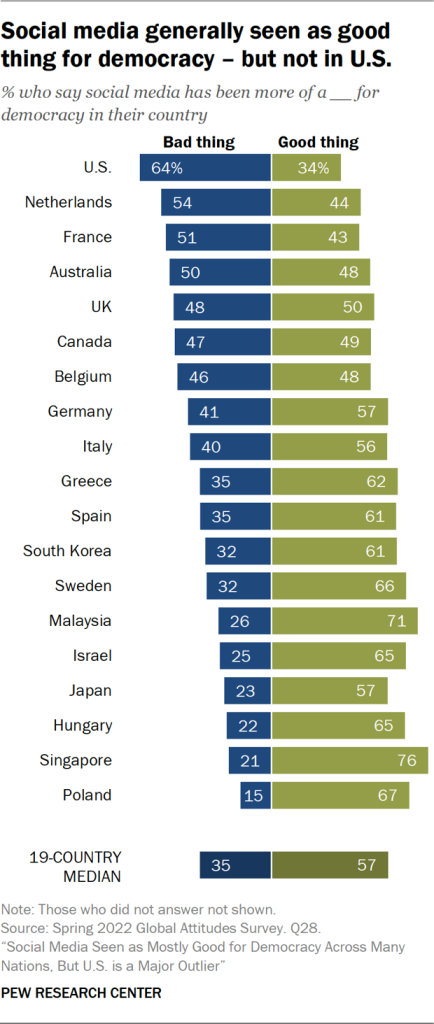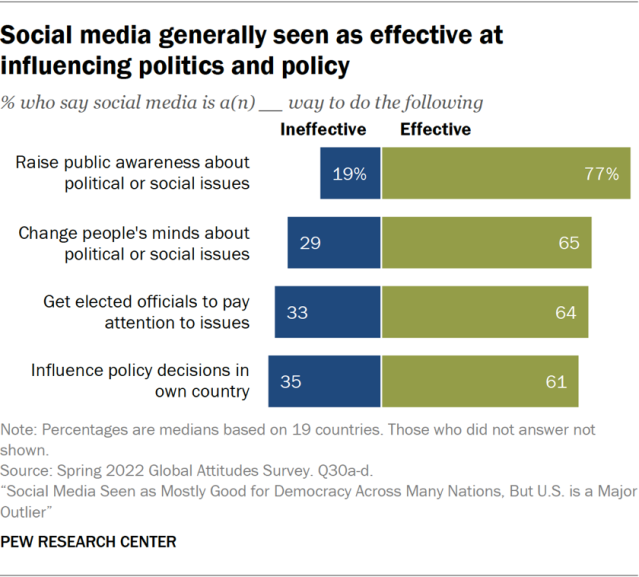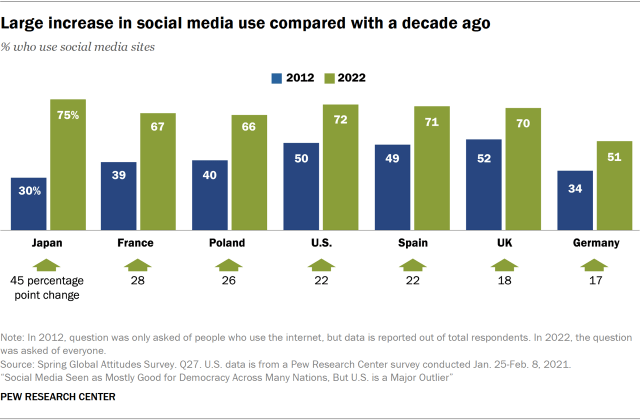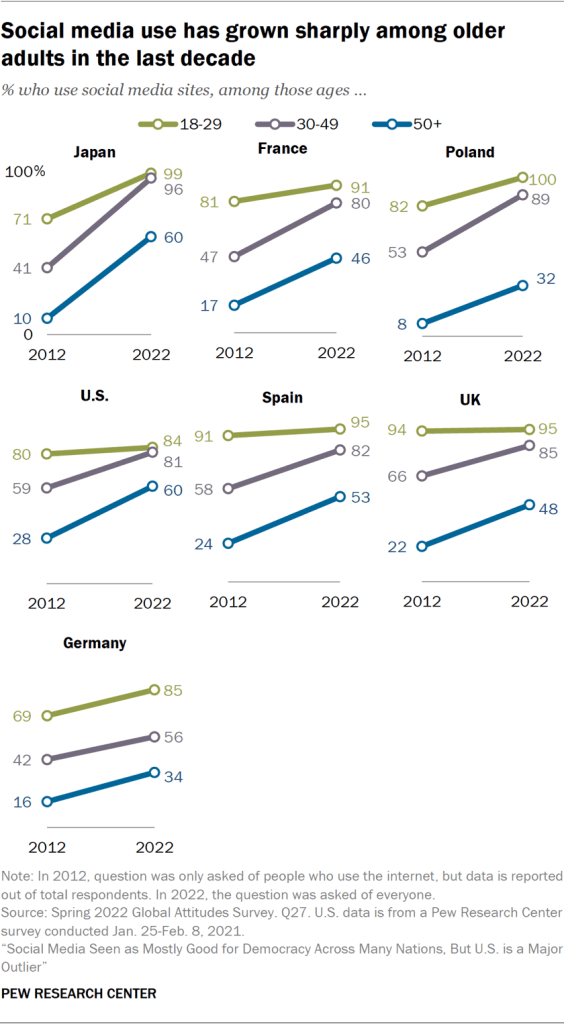What do Japanese people think about the results of a survey that many countries think that 'social media is useful for democracy'?

While social media has become a forum for dissemination and discussion of one's own opinions, it has also been pointed out that in recent years, hoaxes and fake news have spread and become a cause of division, causing harmful effects. became. The results of a survey conducted in 19 countries, including Japan, on social media and democracy have been published.
Social Media Seen as Mostly Good for Democracy Across Many Nations, But US is a Major Outlier | Pew Research Center
https://www.pewresearch.org/global/2022/12/06/social-media-seen-as-mostly-good-for-democracy-across-many-nations-but-us-is-a-major- outlier/
The results of a survey on the percentage of people who think that ``social media is good/bad for democracy'' conducted by the Pew Research Institute, a think tank that investigates the awareness and opinions of people around the world, are as follows. The average of 19 countries was 57% 'good' and 35% 'bad'. In addition, 57% of Japanese respondents answered that they were 'good' and 23% said that they were 'bad', giving them the same positive and negative impressions as other developed countries.

On the other hand, the result was so unique that it was described as a 'clear outlier' in the United States, where only 34% of respondents said that social media was 'good' for democracy, while only 34% said it was 'bad'. 64% were by far the most negative. This is said to be because social media has become one of the main stages of discrimination and division in American society in recent years.
However, social media positive countries are no exception to these problems. The survey found that 84% of people across 19 countries believe that the Internet and social media have made people more susceptible to misinformation and hoaxes. In addition, 70% of people feel that the spread of fake news online is a major threat, highlighting that it is positioned as a crisis next to climate change.
On the other hand, it is also true that social media has become a great weapon for each voter. Below are the results of the question, 'What do you think social media is effective/ineffective?' change,” “make elected officials aware of the problem,” and “influence policy-making in their own countries.” The results show that the majority of people in many countries believe that social media raises public awareness, raises awareness of issues, and raises awareness of issues among politicians.

The driving force behind these benefits is the rapid adoption of social media. The number of people using social media has increased rapidly from 2012 to 2022, and the usage rate has increased by 45 points in Japan, where the growth is particularly remarkable.

The study also found that young people are driving the growth of social media. Especially in countries where the number of people using social media is increasing, such as Japan and Poland, the social media usage rate among young people aged 18 to 29 has reached almost 100%.

Reflecting these realities, it was also found that young people are more likely to think that ``social media is an effective tool in the political field,'' and that the benefits of social media were best realized overall, the Pew Research Center pointed out. Did.
Related Posts:
in Web Service, Posted by log1l_ks







